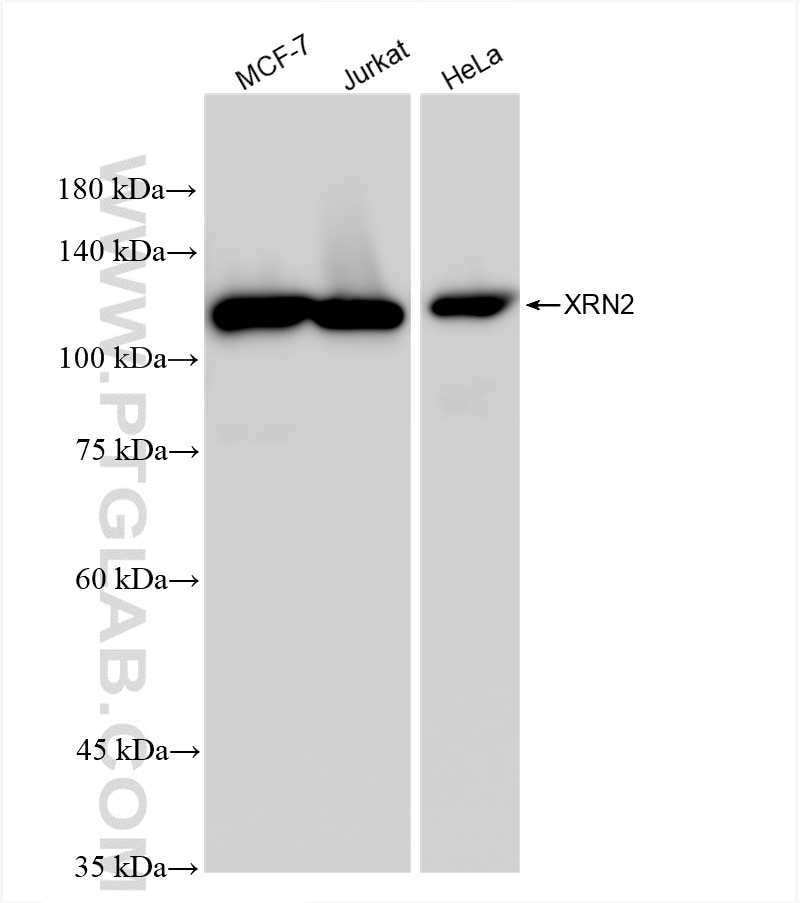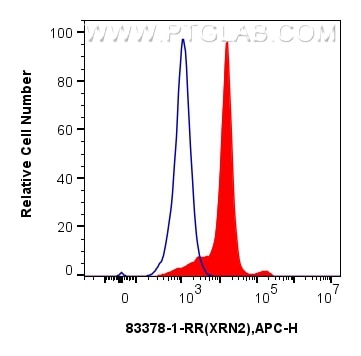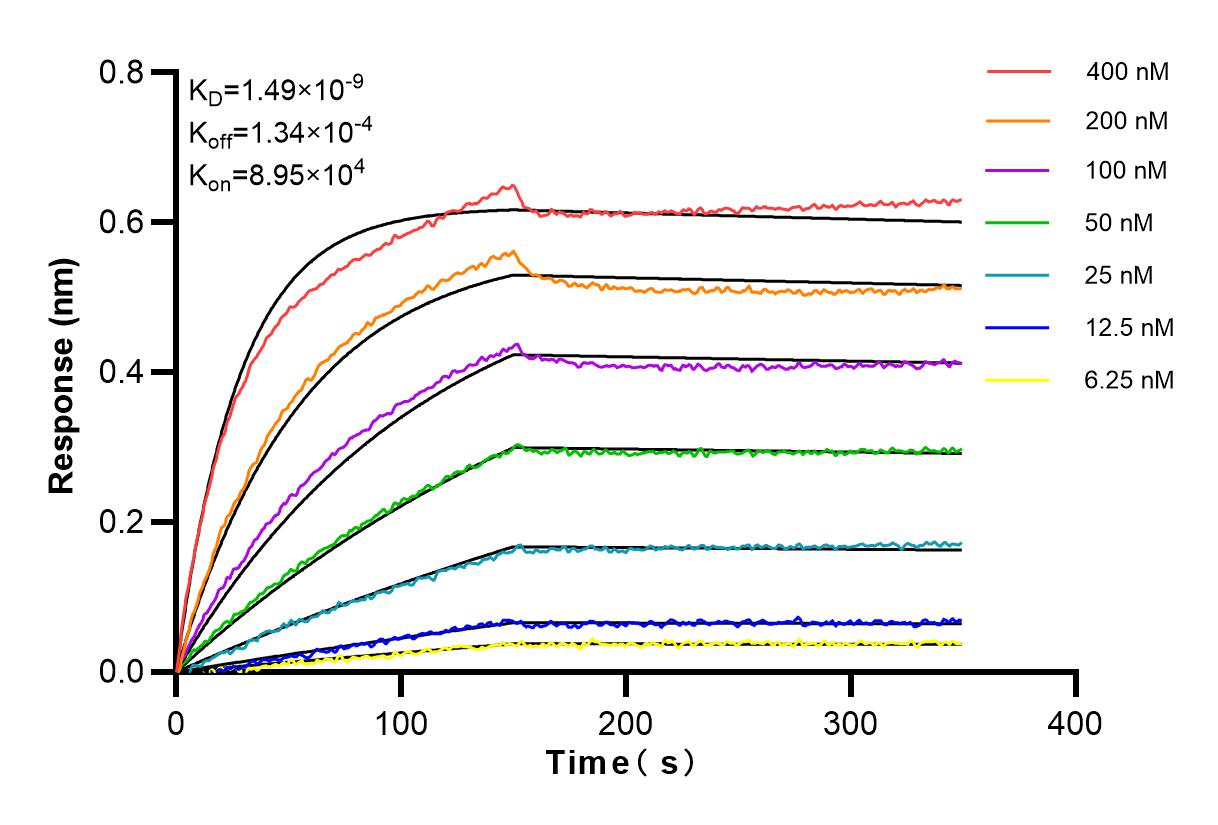Validation Data Gallery
Tested Applications
| Positive WB detected in | MCF-7 cells, Jurkat cells, HeLa cells |
| Positive FC (Intra) detected in | HeLa cells |
Recommended dilution
| Application | Dilution |
|---|---|
| Western Blot (WB) | WB : 1:5000-1:50000 |
| Flow Cytometry (FC) (INTRA) | FC (INTRA) : 0.25 ug per 10^6 cells in a 100 µl suspension |
| It is recommended that this reagent should be titrated in each testing system to obtain optimal results. | |
| Sample-dependent, Check data in validation data gallery. | |
Product Information
83378-1-RR targets XRN2 in WB, FC (Intra), ELISA applications and shows reactivity with human samples.
| Tested Reactivity | human |
| Host / Isotype | Rabbit / IgG |
| Class | Recombinant |
| Type | Antibody |
| Immunogen | XRN2 fusion protein Ag30781 相同性解析による交差性が予測される生物種 |
| Full Name | 5'-3' exoribonuclease 2 |
| Calculated molecular weight | 104 kDa |
| Observed molecular weight | 109 kDa |
| GenBank accession number | BC006417 |
| Gene Symbol | XRN2 |
| Gene ID (NCBI) | 22803 |
| RRID | AB_3671032 |
| Conjugate | Unconjugated |
| Form | Liquid |
| Purification Method | Protein A purfication |
| UNIPROT ID | Q9H0D6 |
| Storage Buffer | PBS with 0.02% sodium azide and 50% glycerol , pH 7.3 |
| Storage Conditions | Store at -20°C. Stable for one year after shipment. Aliquoting is unnecessary for -20oC storage. |
Background Information
XRN2 is one exonuclease that degrades the Pol II associated product of poly(A) site cleavage, which is crucial for Pol II termination. During transcription termination, XRN2 cleavages at the polyadenylation site liberates a 5' fragment which is subsequently processed to form the mature mRNA and a 3' fragment which remains attached to the elongating polymerase. The processive degradation of this 3' fragment by this protein may promote termination of transcription.
Protocols
| Product Specific Protocols | |
|---|---|
| WB protocol for XRN2 antibody 83378-1-RR | Download protocol |
| FC protocol for XRN2 antibody 83378-1-RR | Download protocol |
| Standard Protocols | |
|---|---|
| Click here to view our Standard Protocols |


